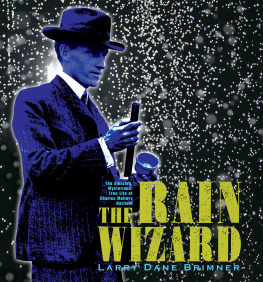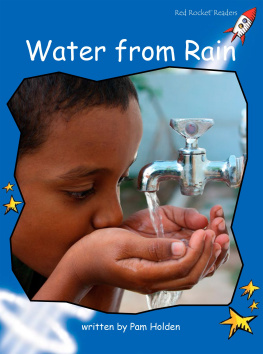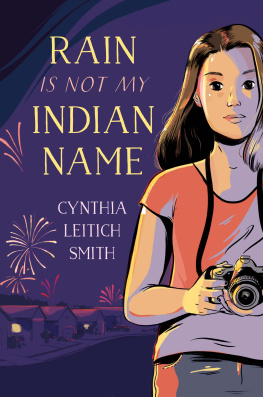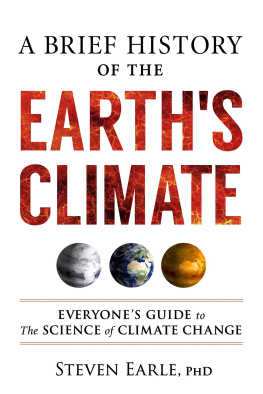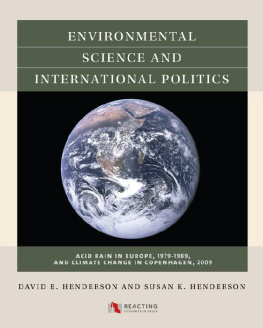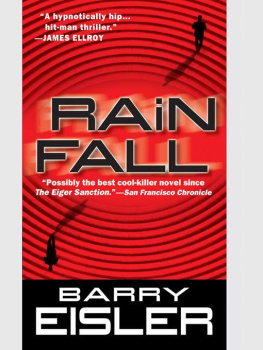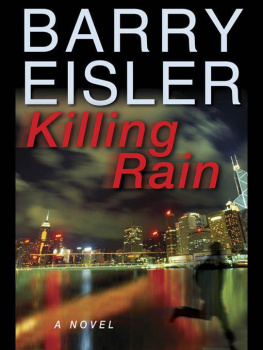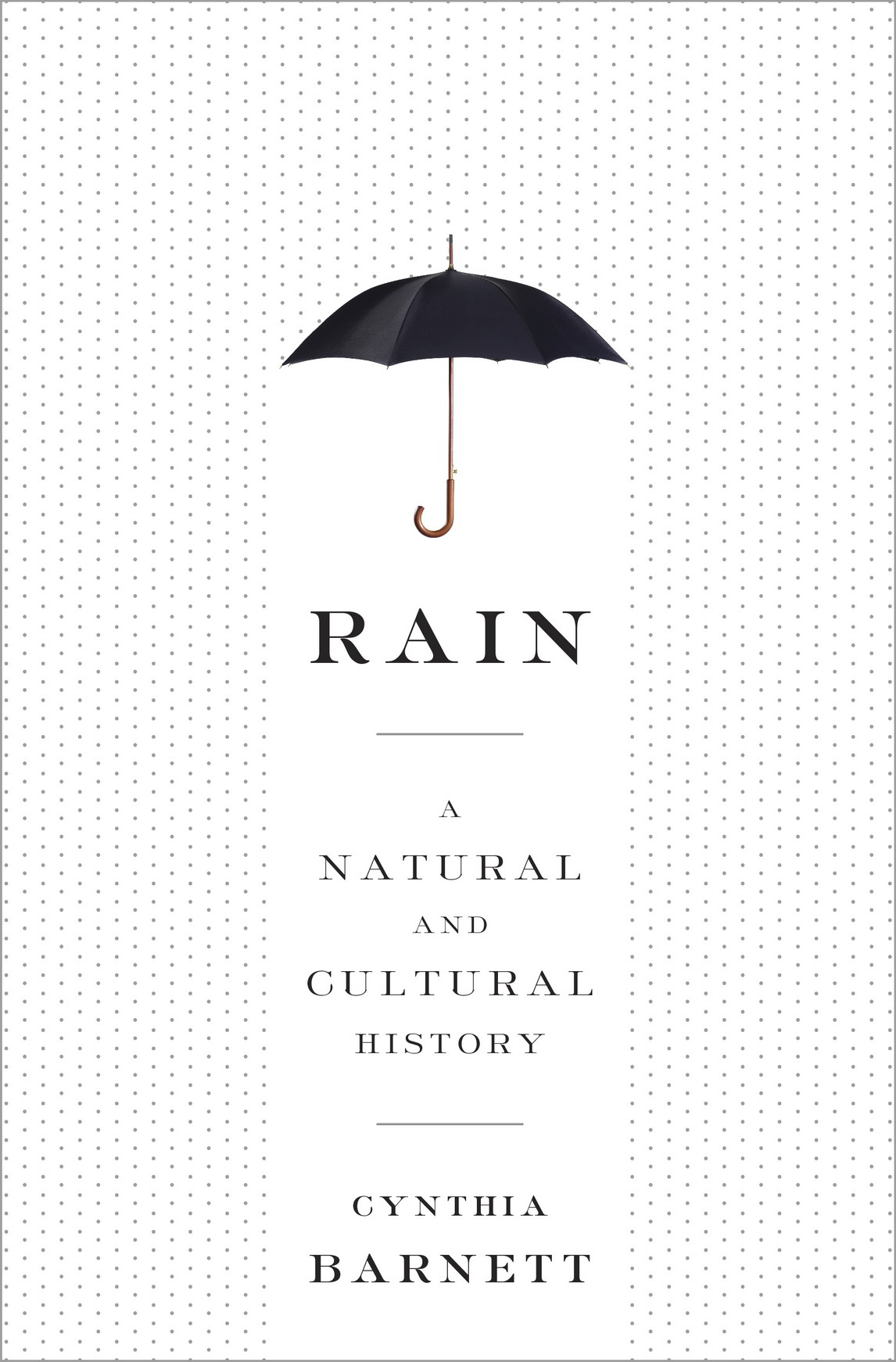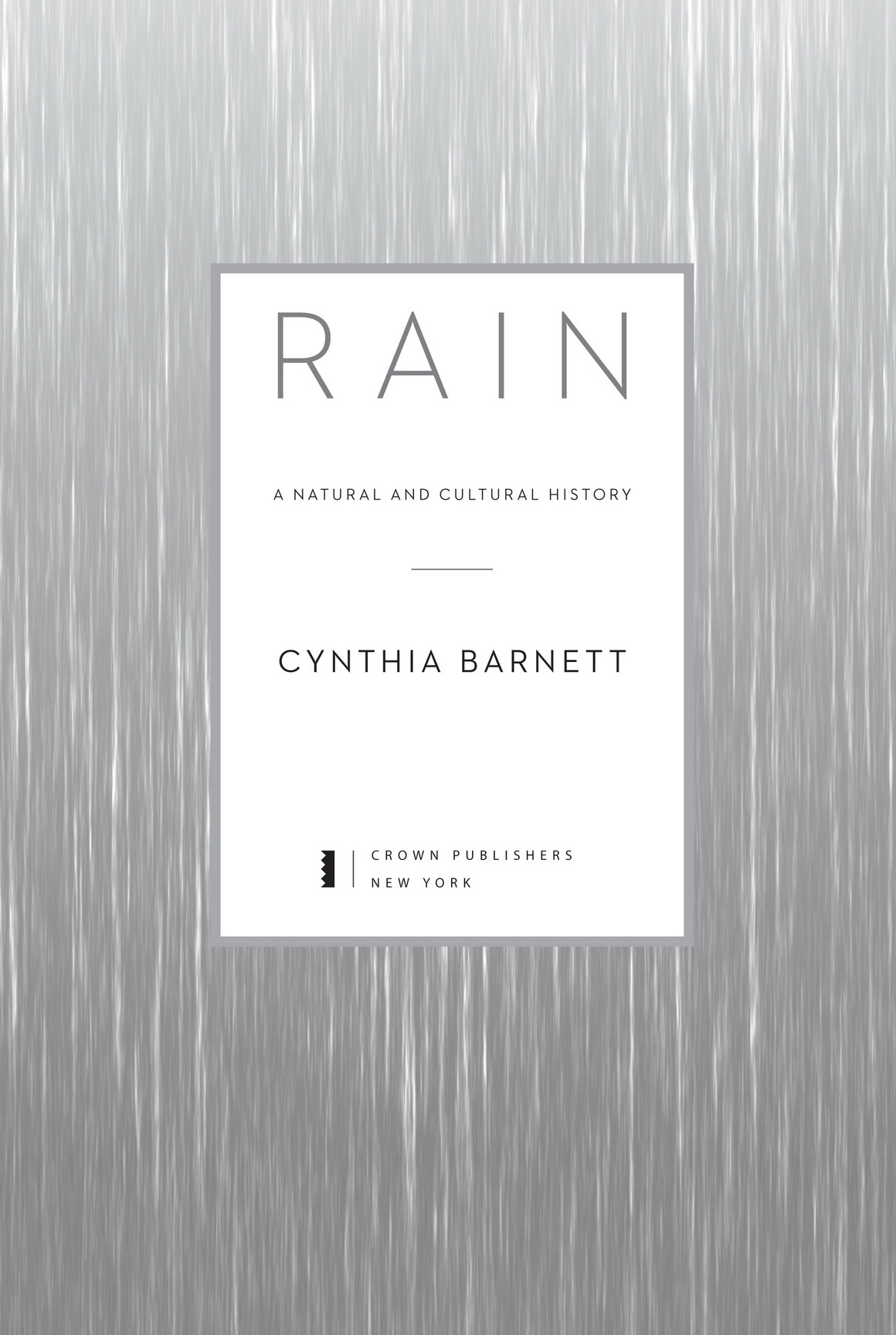Contents
MORE ADVANCE PRAISE FORRAIN
Like the weather, theres no predicting the delightful and sometimes disturbing surprises waiting on every page of Rain. Whether shes writing about Mesopotamia or the Met Office, Cynthia Barnett illuminates the hidden connections that tie our fate to a precious resource we neglect at our peril.
DAN FAGIN, author of the Pulitzer Prizewinning Toms River: A Story of Science and Salvation
Rain is one of the most elegant and absorbing books ever written about the natural world. Writing with grace and imagination, Cynthia Barnett takes you on a journey into the heart of the most elemental force in our lives. An important, revelatory, and thoroughly wondrous book.
WILLIAM SOUDER, author of On a Farther Shore: The Life and Legacy of Rachel Carson
Captivating and compelling, a delightful celebration of precipitation that is brimming with insight. Whether youre desperate for more of it or you just wish it would stop, youll never think of rain in the same way again.
GAVIN PRETOR-PINNEY, author of The Cloud Collectors Handbook
Barnetts beautifully written book envelops the reader in a warm shower of intriguing history and fascinating science. Anyone who looks longingly at rain clouds, rejoices in a spring downpour, or frets about drought will love Rain.
DANIEL CHAMOWITZ, author of What a Plant Knows; director, Manna Center for Plant Biosciences, Tel Aviv University
Rain is one of those uncommonly wonderful books that are both highly significant and deeply pleasurable to read. As we face the coming time of storms, of flood and drought, nothing will be more important than rain. So all gratitude to Cynthia Barnett for writing a book that is clear, surprising, and filled with fascination.
KATHLEEN DEAN MOORE, author of Riverwalking: Reflections on Moving Water
Cynthia Barnett looks at the human relationship to rainfrom Noah to Thomas Jefferson to our own conflicted attitudes. The result is a book of unexpected connections and wonderful surprises. It will give you more respect for every rainstorm you experience, and more joy in the raindrops.
CHARLES FISHMAN, author of The Big Thirst: The Secret Life and Turbulent Future of Water
If you care about this planet, youre lucky that Cynthia Barnett writes so elegantly and intelligently about the stuff that falls on it. Its kind of ironiclike rain on your wedding day?that the folly of mankinds relentless efforts to control the earths water has inspired Barnetts best work yet.
MICHAEL GRUNWALD, author of The Swamp: The Everglades, Florida, and the Politics of Paradise
A seamless blending of personal narrative with scientific and cultural explanationsFans of Mary Roach will recognize a similar ease of style and interjection of wit. Accessible to every reader, from the environmental scientist to the parent choosing whether their child needs to wear a raincoat that day.
LIBRARY JOURNAL (starred review)
Copyright 2015 by Cynthia Barnett
All rights reserved.
Published in the United States by Crown Publishers, an imprint of the Crown Publishing Group, a division of Penguin Random House LLC, New York.
www.crownpublishing.com
CROWN and the Crown colophon are registered trademarks of Penguin Random House LLC.
Library of Congress Cataloging-in-Publication Data
Barnett, Cynthia, 1966
Rain: a natural and cultural history / by Cynthia Barnett.First edition.
pages cm
Includes bibliographical references.
1. Rain and rainfall. 2. Weather. 3. Rainfall anomalies. 4. Droughts. 5. Physical geography. 6. Climatic changes. 7. Earth sciences. I. Title.
QC925.B315 2014
551.577dc23 2014034180
ISBN9780804137096
eBook ISBN9780804137102
eBook design adapted from printed book design by Gretchen Achilles
Cover design by Anna Kochman
Cover photograph: Ryan McVay/Getty Images
v4.1
a
FOR AARON
CONTENTS
And who art thou? Said I to the soft-falling shower ,
Which, strange to tell, gave me an answer, as here translated:
I am the Poem of Earth, said the voice of the rain ,
Eternal I rise impalpable out of the land and the bottomless sea ,
Upward to heaven, whence, vaguely formd, altogether changed, and yet the same ,
I descend to lave the drouths, atomies, dust-layers of the globe ,
And all that in them without me were seeds only, latent, unborn;
And forever, by day and night, I give back life to my own origin, and make pure and beautify it;
(For song, issuing from its birth-place, after fulfilment, wandering,
Reckd or unreckd, duly with love returns.)
WALT WHITMAN
The Voice of the Rain
1885
PROLOGUE
ORIGINS
T he rain on Mars was gentle, and welcome. Sometimes, the rain on Mars was blue. One night, rain fell so marvelously upon the fourth planet from the sun that thousands of trees sprouted and grew overnight, breathing oxygen into the air.
When Ray Bradbury gave Mars rain and a livable atmosphere in The Martian Chronicles, science fiction purists grumbled that it was completely implausible. In the previous century, astronomersand writers like H. G. Wells who borrowed from their work to give sci-fi a tantalizing authenticityhad seen Mars as Earthlike, odds-on favorite for life on a planet other than our own. But by the time The Martian Chronicles was published in 1950, those odds had changed. Scientists viewed Mars as chokingly dry, impossibly harshand far too cold for rain.
Bradbury didnt care to conform to the scientific views of the day. On any planet, he was much more interested in the human story. He created a rain-soaked Venus, too, but not because scientists then considered it a galactic swamp. Bradbury just loved rain. It fit his melancholy like a favorite wool sweater. As a boy, he had loved the summer rains of Illinois, and those that fell during family vacations in Wisconsin. Hawking newspapers on a Los Angeles street corner as a teen, Bradbury never minded a late-afternoon deluge. And in his eighty years of writing every day, raindrops tap-tap-tapped from the typewriter keys into many a short story and every book.
A Bradbury rain could set a gentle scene or a creepy one. It could create moods of gloom, mania, or joy. In his short story The Long Rain, he made rain a character all its own: It was a hard rain, a perpetual rain, a sweating and steaming rain; it was a mizzle, a downpour, a fountain, a whipping at the eyes, an undertow at the ankles; it was a rain to drown all rains and the memory of rains.
So often making rain the mise-en-scne for life, Bradbury was onto something. Everyone knows that life could not have developed without water. Life as we define it required a wet and watery planet. But the Earth-as-exceptional-blue-marble story many of us grew up with is, in some ways, as much a product of the human imagination as the warm Mars sea of


